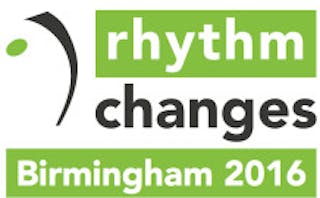Rhythm Changes

Researchers
Tony Whyton and Andrew Dubber
Background
Funded as part of the Humanities in the European Research Area’s (HERA) ‘Cultural Dynamics: Inheritance and Identity’, Rhythm Changes is a Jazz research programme that will discover new insights to address social, cultural and political problems in Europe. Professor of Jazz Studies, Tony Whyton and Professor of Music Industries, Andrew Dubber are collaborating with an international team of researchers, who will hold workshops, performances, oral histories, and interviews.
The research will be based on four different themes:
1. 'Canon, History and Ideology
2. Identity, Hybridization and Communities in Flux
3. Nation, Identification and Inheritance
4. Cultural dynamics and social transformations
Aims
The Rhythm changes project aims to:
- Investigate into the identity of Jazz from a trans-national viewpoint
- Collect data from research, projects, performances and interviews related to Jazz
- Explore representations and stereotypes linked to Jazz and the development of its identity
- Analyse interactions between cultural memory, arts, tourism and festivals
- Implement activities that will reveal their findings to the public and academia trans-nationally
Results
From 14 to 17 April 2016, 160 people attended a Rhythm Changes conference named 'Jazz Utopia' at Parkside to present their work and showcase Jazz musicians, with lecturers taking to the stage to present their studies. Ingrid Monson (Harvard University) gave a speech on how "students' parents and grandparents got their political impulse from Alice Coltrane" but the students only know of jazz from hip-hop.
Books, journals, articles and reports have been the main product of this research. Tony Whyton co-wrote a report on Historical overvIews of five partner Countries which thoroughly documented the development of Jazz in Denmark, the Netherlands, Norway, Austria and Britain. Alongside this, the researcher also published a report on the statistics of Jazz in these countries.